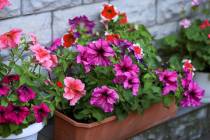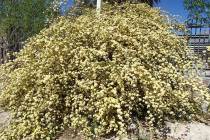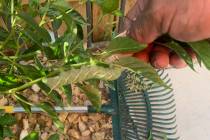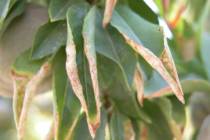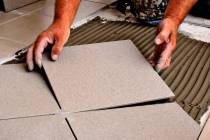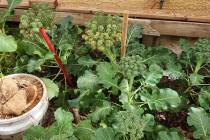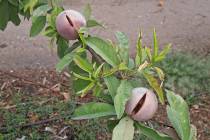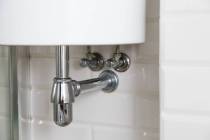Avoid hazards around aqueous areas
As temperatures rise, many organizations begin touting the importance of water safety. From the international Association of Pool and Spa Professionals to local organizations such as the Las Vegas Fire and Rescue, Southern Nevada Health District and Metropolitan Police Department, water safety campaigns stress the urgency of being vigilant in and around all aqueous areas.
One should never underestimate the importance of practicing proper safety measures around any body of water, including water fountains, man-made and natural lakes, spas, koi ponds, public and residential pools.
Additionally, any container in which a child's mouth or nose can be submerged should be considered a source of danger for an unattended child. These include bathtubs, buckets of water, portable wading pools and toilets to name a few.
Children have a compulsion to play in and around water and at times can become very determined and crafty in getting to their destination. Even with multiple barriers, an unwatched child is still at risk. Well-secured, self-locking gates, high-pitched alarms, safety covers, motion sensors, permanent or removable fencing, closed-circuit cameras and monitors, as well as other devices all provide additional deterrents to water-themed amenities. These are all secondary barriers and are not a substitution for constant adult supervision.
With the accessibility of low-cost and easy-to- assemble water fountains, koi ponds and small pools, more homeowners are installing these amenities without considering the safety aspects to protect their little ones. Government codes and ordinances in Las Vegas and surrounding areas now require homeowners to provide protective barriers with every new pool built, however these laws do not pertain to existing pools or other water-based features. Installing safety barriers are a good idea to protect children, pets and individuals with special needs.
The Southern Nevada Health District publishes and distributes the "ABCDs of Water Safety." A equals adult supervision (constant); B equals barriers (multiple); C equals classes (swim, CPR and lifesaving lessons); D equals devices (personal flotation, life jackets and rescue tools). You can locate the guide at www.gethealthyclarkcounty.org .
Michael Bernstein, M.Ed., health educator for the Southern Nevada Health District, said, "Drowning is a leading cause of unintentional death in Southern Nevada for young children, most under the age of 4 years. These tragedies often occur while a caregiver is at home and there is a brief lapse in supervision."
When entertaining around one's pool or lakeside residence, homeowners should be conscientious of their guests and provide safety reminders to everyone before they venture out to the pool or shoreline. A responsible adult should be designated to supervise any water-related activity.
"There is nothing more disturbing to a firefighter or paramedic than to respond to a call involving children that have drowned or are near drowning, because in every case it was fully preventable. Adults must make it a No. 1 priority to prevent such a tragedy from occurring, especially if you have a pool or other outside water area such as a pond or spa. We must also remember there are sources of water in the home which are just as dangerous, such as the toilet, sinks, bathtubs or even an unattended bucket of water," said Timothy R. Szymanski, Las Vegas Fire and Rescue public information officer.
The APSP provides three free water-safety pamphlets to consumers: "The Sensible Way to Enjoy Your Inground Swimming Pool," "The Sensible Way to Enjoy Aboveground/Onground Swimming Pool," and "The Sensible Way to Enjoy Your Spa or Hot Tub." The pamphlets are available through the organization's Web site, www.theapsp.org or by phone at (703) 838-0083.
In addition to the "ABCDs of Water Safety," adults, teens and children also should practice other common safety rules:
* Never swim alone.
* Never run on the deck.
* Never push someone into the water.
* Never jump on someone in the water.
* Never dive into shallow water.
* Never chew gum or eat while swimming.
* Never leave toys in the pool area.
* Never leave children or young babysitters in charge of children around waterways.
Learning to swim and other life-saving skills are essential for all family members and pool owners. Pool safety programs and information are available at many private and public recreational facilities. The YMCA of Southern Nevada holds aquatic programs year-round.
Joe Vassallo is the president of Paragon Pools, as well as a member of the Association of Pool and Spa Professionals, a certified building professional and a representative of the APSP National Builders Council, Region XI. Send questions or suggestions for column ideas regarding pools and spas to him at jvassallo@paragonpools.net or 251-0500.









